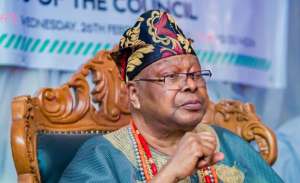China isn’t about to invade Taiwan. But the two sides are on a dangerous path

The dramatic statement came after China sent its Countries around the region are defending Taiwan’s right to self-governance like never before. Japan’s Defense Minister Nobuo Kishi told CNN that Tokyo would “respond accordingly” to any attempt by China to take Taiwan by force, while Australia’s Foreign Minister Marise Payne committed to forging stronger ties with the island.And the support extends beyond Asia-Pacific. For example, in September, Lithuania became the first European nation in decades to allow Taiwan to have a diplomatic mission under its own name. Taiwan’s closer relations with the United States have emboldened it on the world stage. Under the Trump administration in 2020, Taiwan welcomed some of its highest profile US visitors in decades, and to Beijing’s frustration, the Biden administration has not reversed that trend. J. Michael Cole, a Taipei-based senior fellow with Global Institute Taiwan, said the growing tensions between the US and China had also helped Taiwan boost its profile.”Taiwan realizes that the international community is becoming a little bit more accommodating to Taiwan, more understanding of the role that Taiwan as a liberal democracy has to play in this growing clash of ideologies,” he said.Rather than a prelude to an invasion, the increased Chinese flyovers are a symbol of Beijing’s frustration and a reminder to Taiwan and the US not to cross China’s “red lines,” said Bonnie Glaser, director of the Asia Program at the German Marshall Fund of the United States. She said those red lines, which if crossed could spark a military escalation from Beijing, include campaigning for formal Taiwan independence or a decision to deploy large numbers of US troops to the island.”China wants to keep Taiwan in a box and it is using more and more coercion against Taiwan … They want to intimidate Taiwan,” she said.
“China wants to keep Taiwan in a box and it is using more and more coercion against Taiwan … They want to intimidate Taiwan.”Bonnie GlaserDirector of the Asia Program at the German Marshall Fund of the United States
But Beijing’s audience isn’t only in Taiwan and the US — it’s also at home.By putting pressure on Taiwan, President Xi Jinping is trying to shore up support ahead of the 2022 Chinese Communist Party Congress. That’s when Xi’s second term ends, though it’s almost certain he’ll stay on as President.Wen-Ti Sung, a fellow at the Australian Centre on China in the World at the Australian National University (ANU), said Xi also wants to garner support ahead of a meeting of the Communist Party in November where a shortlist of candidates for higher office will be finalized.A strong policy on Taiwan could determine how many allies he can place in top positions for the next five years.”At a moment like this, using some show of force to drum up nationalist sentiment, create a ‘rally around the flag’ effect, is usually a good thing for the incumbent, for the commander-in-chief,” he said.And the Communist Party has major priorities over the coming year which an invasion of Taiwan would dramatically complicate — a smooth-running Beijing 2022 Winter Olympics in February and the imminent 20th party congress.China’s ‘peaceful reunification’ goalOne of the clearest signs of Beijing’s reluctance to invade Taiwan came from an unusual source — Xi himself.In a speech on October 9, the Chinese President emphasized his desire for “peaceful reunification” with Taiwan, and appeared to imply he was prepared to wait for the island to voluntarily comply.”When I read what Xi Jinping says about Taiwan I’m struck at the lack of urgency,” Glaser said.Aiming for a peaceful resolution to the standoff over the Taiwan Strait makes sense — experts have long said that any attempt by Beijing to forcefully take the island would be a hugely costly endeavor, with an uncertain outcome.In extensive war games held by the US earlier this year, the American forces were able to thwart a simulated Chinese invasion of Taiwan in the year 2030 — just. According to Defense News, exercises estimated it would be a Pyrrhic victory with massive loss of life.But experts said it is hard to see what path remains for Beijing’s vision of unification.Support for moving toward “independence” for Taiwan, meaning pursuing a future formally separate from mainland China, is at its highest point in decades, according to surveys by Taiwan’s National Chengchi University’s Election Study Center.In June, a poll of 4,717 people in Taiwan found 25.8% want to move toward independence, while fewer than 10% want “unification” with mainland China. The majority opinion was to stick with the status quo for now. The sentiment for a move toward independence has more than doubled since 2018, the survey found.
“In light of the Hong Kong crisis, I think the appeal of a peaceful unification under a ‘One Country, Two Systems’ scenario in Taiwan is very, very low.”Wen-Ti SungFellow at the Australian Centre on China in the World at the Australian National University
Sung attributed the rise to Beijing’s brutal treatment of Hong Kong, a major financial hub that was promised 50 years of semi-autonomous governance, only to have its civil liberties severely curtailed by Beijing after major pro-democracy protests in 2019. “In light of the Hong Kong crisis, I think the appeal of a peaceful unification under a ‘One Country, Two Systems’ scenario in Taiwan is very, very low,” he said.Beijing has several reasons to hope Taiwan will eventually unify voluntarily. The newly-elected leader of Taiwan’s And Cole, from Global Institute Taiwan, said that in itself might be the most worrying thing. If it becomes clear there is no chance of unification, and Xi’s reputation or hold on power is at stake, the Chinese President could resort to drastic measures.”At that point, I fear that he could be compelled to, to resort to force or other course of measures against Taiwan, if only to demonstrate once again to the … Chinese people that he has things under control,” he said.Sung, from ANU, said all the diplomatic, economic and military coercion might backfire against Beijing and undermine its own objective of “peaceful reunification” with Taiwan. Instead of creating an atmosphere of fear and helplessness as intended, the Chinese Communist Party is building a stronger sense of identity and community for Taiwan, he said.”It doesn’t take a genius to figure out the more you highlight that shared experience, the more you accentuate Taiwanese national identity. And the more you diminish support for unification with China,” Sung said.CNN’s Ben Westcott reported from Hong Kong and Eric Cheung reported from Taipei.







